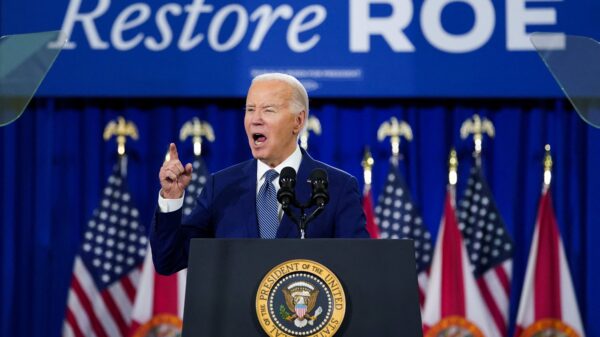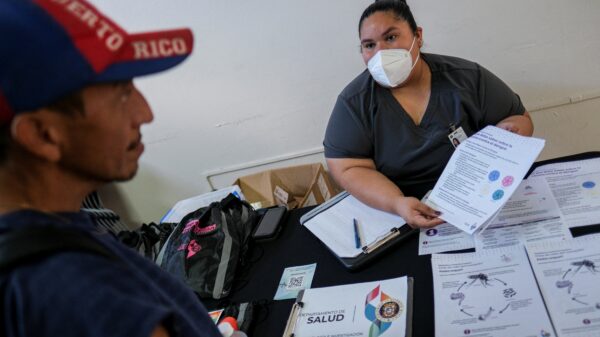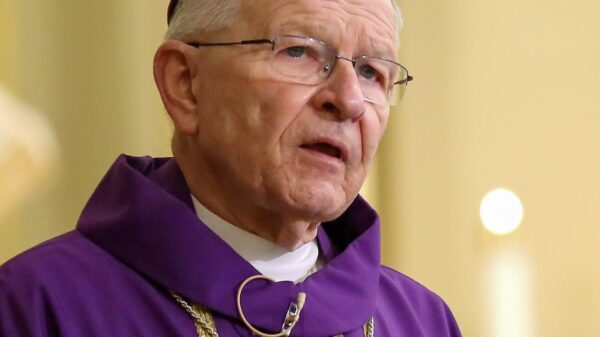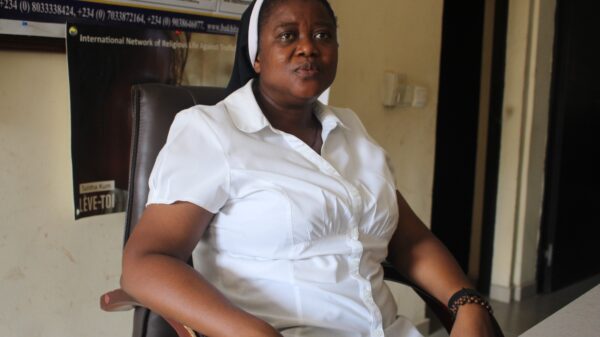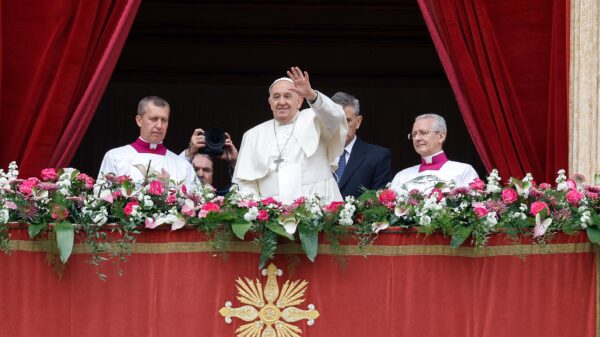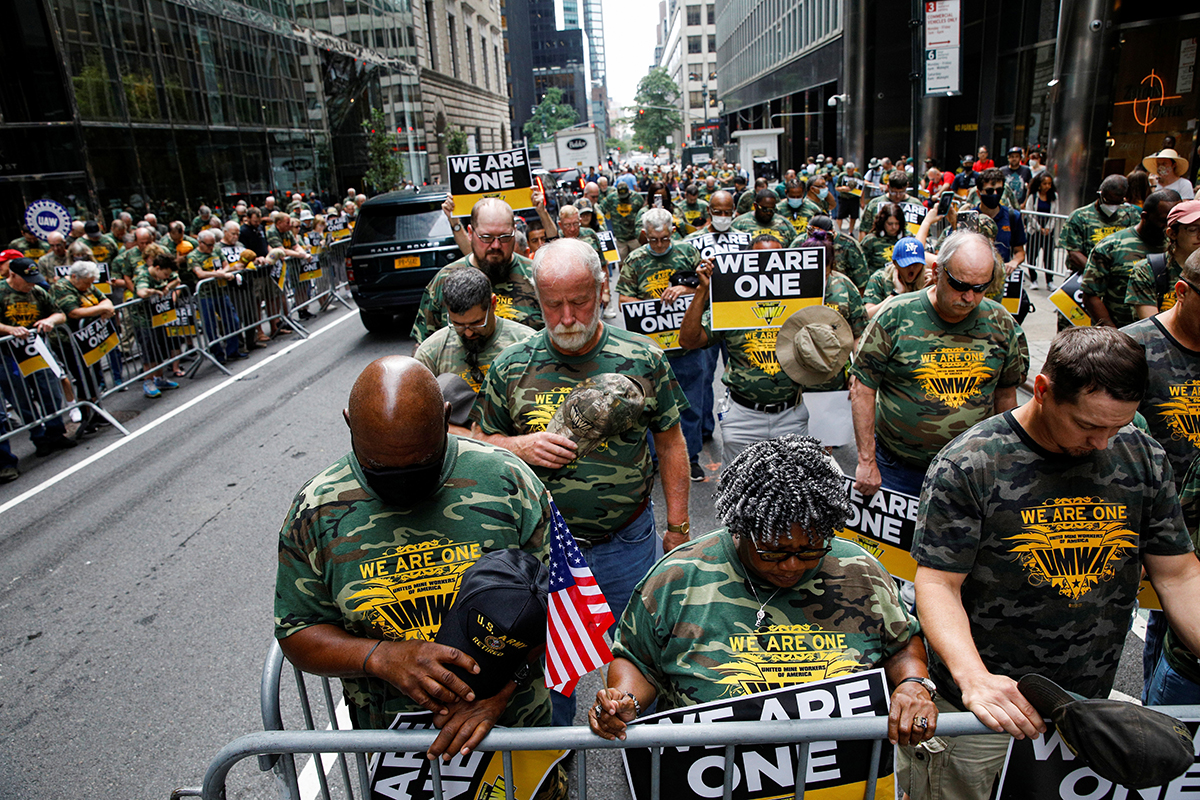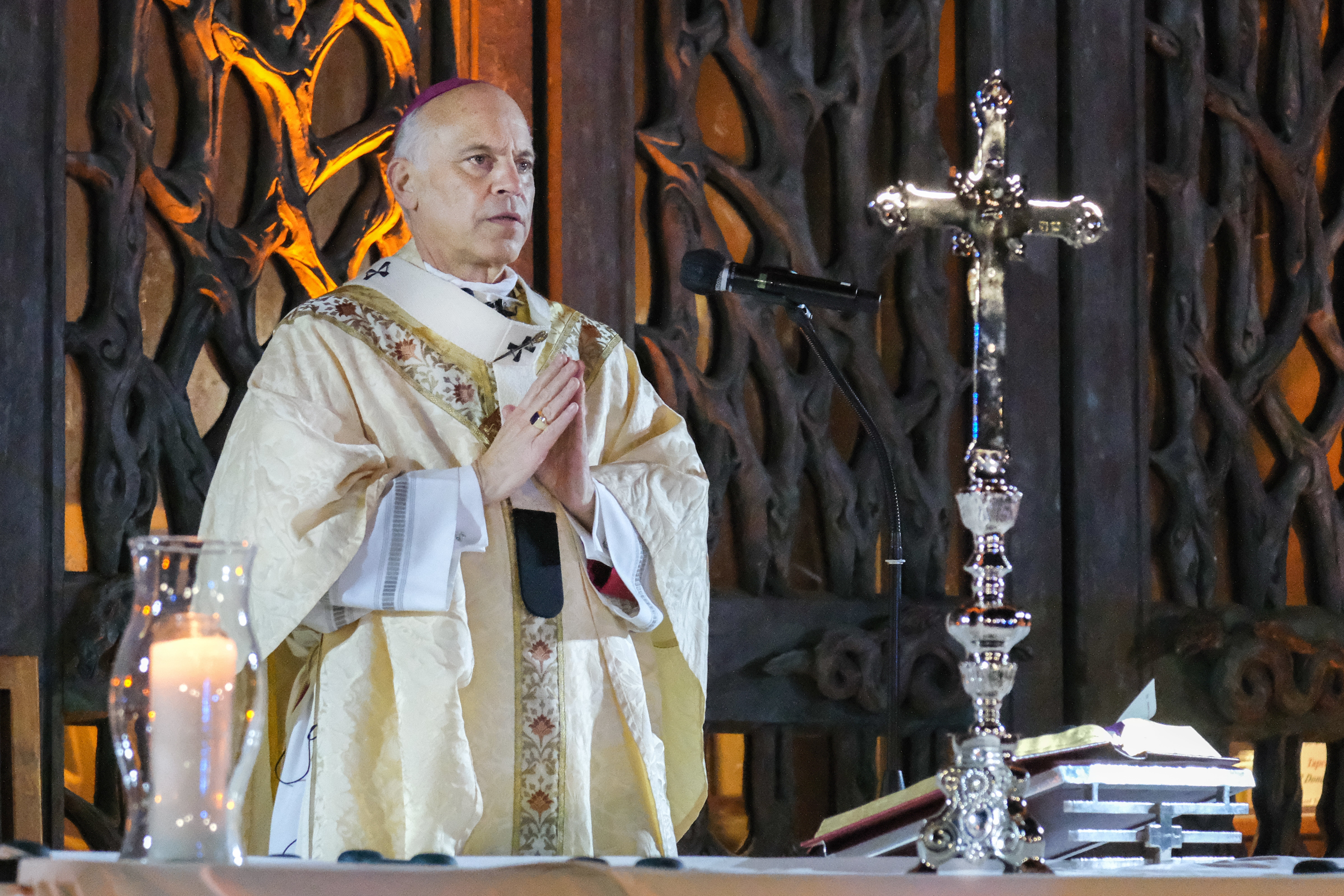(OSV News) — As Americans are heating up the backyard barbecue for celebratory Labor Day cookouts Sept. 4, news headlines daily shout about the cooling down of the U.S. job market.
“Demand for Workers Cools,” said The Wall Street Journal. “US labor market loses steam as job openings, resignations decline,” stated Reuters. And The New York Times informed its readers, “Job Openings Dropped in July as Labor Market Cooled.”
On Aug. 30, the U.S. Bureau of Labor Statistics reported, “Unemployment rates were lower in July than a year earlier in 192 of the 389 metropolitan areas, higher in 176 areas, and unchanged in 21 areas.”
The country’s unemployment rate currently stands at 3.5%, representing 5.8 million total unemployed.
“I definitely think this Labor Day, there’s more of a focus by the nation on the state of labor,” said Daniel Graff, director of the Higgins Labor Program at the University of Notre Dame’s Center for Social Concerns. “Coming out of the pandemic — and with the rise of labor organizing we’ve seen the last couple of years — it’s clear that Americans are talking about labor questions more than in the recent past.”
The first half of 2023 witnessed a sharp uptick in labor union activity, including strike actions. Preliminary U.S. Bureau of Labor Statistics data indicate some 295,000 American workers have participated in work stoppages through July of this year, which Reuters reported Aug. 30 is “putting 2023 on track to become the busiest year for strikes since 2019.” In 2022, the Cornell School of Industrial and Labor Relations Action Tracker registered 424 work stoppages by 224,000 employees, including 417 strikes and seven lockouts.
Diverse commercial sectors have been impacted, including media, parcel delivery, aerospace, auto and steel production, retail, hospitality and health care. Striking workers were not restricted to traditional manufacturing trades, either, with Hollywood writers and actors, airline pilots and nurses all staging strikes or leveraging new contract negotiations.
Among the companies involved were “household names” such as UPS, FedEx, American, Delta, United Airlines and Starbucks.
Over a year ago, Amazon workers hailed their first union in the U.S. — at an 8,300-person warehouse on Staten Island — but have since gained little ground.
“Lots of Americans are struggling — whether it’s due to inflation, or the erosion of the job contract, or the requirement that you have two full-time workers per household to sustain a working-class lifestyle,” Graff said.
“It’s pretty impressive — the amount of union and unionizing workers who are in the public eye,” he said. “There’s just a lot of movement — even though in most of those sectors, so far, there’s no resolution yet.”
Graff said, “I think it’s still — in this country, and in this climate — really hard to organize a union, and get to a first contract. We haven’t seen that many ‘paper wins’ yet. … It’s the conversations and the visibility that are causing people to take notice.”
According to the U.S. Bureau of Labor Statistics, union membership rate — the percent of wage and salary workers who were members of unions — was 10.1% in 2022, down from 10.3% in 2021.
The AFL-CIO found in a recent poll that more than two-thirds of Americans support labor unions; among people younger than 30, 88% expressed solidarity.
“I do think young people are really questioning the economy they’re inheriting, and trying to find a job in,” said Graff.
On Aug. 28, the U.S. Treasury Department released a report concerning the economic impact of labor unions.
“Unions could contribute to reversing the stark increase in inequality we’ve seen in recent decades,” Treasury Secretary Janet L. Yellen observed in a press teleconference, “promoting economy-wide growth.”
Unionized workers, Yellen said, earn up to 15% more pay than nonunion workers in the same occupations. She also cited a higher rate of retirement benefits, medical benefits, life insurance and other fringe benefits.
Yellen noted that the report’s findings “challenge arguments that unions hold back growth.”
“I certainly see with my students at Notre Dame a greater interest in unions and questions about unions as vehicles for upward mobility, for security for households, and even linking it to child care,” Graff said. “You don’t have to be a union partisan to think these are good developments if it means we might raise the wages of an entire group of Americans, and deliver secure and better employment relationships.”
The right to unionize and seek workplace equity — and to strike, if necessary — is fundamental to Catholic social teaching. Pope Leo XIII, St. John XXIII, St. Paul VI, St. John Paul II and Pope Benedict XVI have all expounded on unionized labor topics, in both official and unofficial pronouncements.
More recently, Pope Francis — addressing the Italian General Confederation of Labor in December 2022 — declared, “there are no free workers without trade unions.”
However, the famously rugged spirit of American individualism, labor historians say, can sometimes complicate U.S. labor organizing efforts.
“I think we as a country have a major psychological tension between our profound love of autonomy — being an autonomous citizen on our own and bucking at any kind of authority over us — and at the same time, trying to build a trade union system,” said Father Sinclair Oubre, the spiritual moderator of the Catholic Labor Network and pastor of St. Francis of Assisi Catholic Church in Orange, Texas.
“The tension is that yes, we need structures so that workers will not be autonomous beings that must negotiate in a very unbalanced power structure for their well-being,” Father Oubre said.
“But at the same time, we’re living in a country that, one, does not value work — you’ve got to have a career — and two, that, if it comes down to doing what’s best for me or standing in solidarity, well, of course we do what’s best for me,” he said.
“When you’re trying to organize a union, it means that you’re going to have to sacrifice your personal ambition to the well-being of the greater community so that everybody moves forward together,” explained Father Oubre. “And that’s really hard in a country that says, ‘I can do whatever I want, and I have no obligations to anybody else.'”
Archbishop Borys Gudziak of the Ukrainian Archeparchy of Philadelphia, chairman of the U.S. Conference of Catholic Bishops’ Committee on Domestic Justice and Human Development, said in the USCCB’s 2023 Labor Day Statement that, while there are signs of an improving U.S. economy, “a report from the Federal Reserve on economic well-being found that more families feel like they are worse off today than the year before.”
Archbishop Gudziak noted the monetary challenges ordinary Americans face — for unexpected expenses, food costs, housing and health care — and emphasized, “We must do more to support families.”
Titled “Radical Solidarity with Working Families,” the USCCB statement urges “bipartisan solutions,” calling upon Congress to strengthen the Child Tax Credit; advising national support for paid family leave; and suggesting better access to affordable, quality child care and pre-kindergarten, which it says also ensures just wages for child care workers and teachers.
The USCCB statement also notes “the essential role labor unions can and often do play in society must be acknowledged and affirmed. … Unions should continue to be supported in their work that supports healthy, thriving families.”
“Catholic social teaching tells us that the purpose of the economy is to help families thrive,” said Julie Bodnar, policy adviser in the USCCB’s Department of Justice, Peace and Human Development. “This Labor Day statement is really Archbishop Gudziak asking, ‘How do we do that better?'”
Bodnar noted the USCCB’s long-standing policies advocating for and supporting affordable housing, nutrition programs, social safety nets, health care access and worker rights, including “safe working conditions regardless of immigration status,” the statement stipulates.
“There’s a lot of overlap between issues that affect the family and issues of labor,” Bodnar said. “How do we make sure that work life supports family life? How do we support working families? Labor Day is a good time to be talking about all of this.”
These questions naturally lead to others — which can underscore the challenges ahead.
“How do we truly prioritize the well-being of families? How do we build an authentically life-affirming society? And are we living up to that right now?” asked Bodnar. “I think there’s definitely work to be done.”
Kimberley Heatherington writes for OSV News from Virginia.


